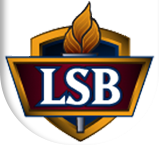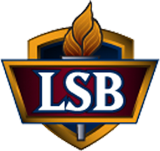Evaluating Information on the Web: The CRAAP Test
Ask yourself these questions as you evaluate information that you find on the web (or anywhere!) to decide whether it’s reliable enough to use for your academic research. Keep in mind that some of these questions will be more or less important depending on your topic or the specifics of your assignment. Don’t accept or reject a web site based on only one of these questions!
Currency: The timeliness of the information.
·Currency: The timeliness of the information.
·When was the information published or posted?
·When was the site last revised or updated? Be suspicious if today’s date is on the site; it’s easy to program a web site todisplay today’s date, even if it hasn’t been updated in years.
·If there are links to other sites, do they work or are they “dead”? Dead links are a sign that a page hasn’t been updated in along time.
·Is the information still relevant?
·Check the creation date and update information on the page or the site’s home page.
·If no date is listed on the page:
·Internet Explorer: Click on “Page” tab and select “Viewsource” from the pull-down menu;
·Firefox: Click on “Web Developer “and select “View Page Source” from the pull-down menu. This will show the date and time the page was last updated.
Relevance: The importance of the information for your needs.
·Is the material written at a level that is too basic or too advanced for your purposes?
·Is your topic the main focus of the site, or is your topic just mentioned briefly? Is the whole site about your topic, or just this page?
·Does the source offer anything informative, unique, or insightful about your particular area of interest/ research?
Authority: The source of the information.
·Who wrote the page? What can you find out about that person or organization? What else have they done or written? (You might try searching for the person’s name in Google to learn more about them.)
·If the site is connected to an organization, what is its mission? What else can you find out about it?
·If it’s a person, are his/her credentials legitimate? Are his/hercredentials relevant to the topic of the page? Is the author qualified to write on the topic? What do other experts and authorities say about him or her?
·Is there contact information for the author or the organization?
Accuracy: The reliability, truthfulness and correctness of the content.
·Where does the information come from?
·Is the information supported by evidence? Are there references to sources that support the claims made by the site? Has the information been reviewed or refereed? Are they from academic/research journals or other reliable sources?
·If statistics are cited, can you verify the accuracy of the statistics – the cohort, date, and purpose? Is the content the same in the electronic version as it is in print?
·Can you verify any factual information in another source: your textbook, an encyclopedia, your own personal knowledge?
·Are there spelling, grammar or typographical errors on the page?
·If there are links to other sites, do those sites appear reliable to you (do they pass the CRAAP test themselves)?
Purpose: The reason the information exists.
·What is the purpose of the web site? To present research, to persuade, to entertain, to sell a product? What is the stated purpose of the site? Is there an implied purpose that differs from the stated purpose?
·Who is the intended audience for the web site?
·Is there evidence of political, ideological, cultural, religious, institutional or personal bias in the facts presented or the language used? Is the information fact, opinion or propaganda?
·Is it a marketing tool or information furnished by an organization without the intent to gain? Is there advertising on the site? Is the advertising related to the content or not? What does that tell you about the reliability of the site?
·Does the URL reveal anything about the author or source? What is the domain of the site (.com, .edu, .org, .gov, etc.)? (Note: just because a site has a .org or .edu domain does NOT make it reliable!)
The CRAAP test is based on work done by the librarians at Meriam Library, California State University at Chico http://www.csuchico.edu/lins/handouts/eval_websites.pdf, updated Sept. 17, 2010. The questions are adapted from the CRAAP test, John Henderson, Ithaca College Library, “A Guide to Critical Thinking about What You See on the Web” http://www.ithaca.edu/library/training/think.html, and Catherine Pellegrino, Cushwa-Leighton Library at Saint Mary’s College “Evaluating Information on the Web” http://livebinders.com/media/get/Mjg3NzIw.
Check the list of Recommended Websites. These are reputable sites that can be used for research purposes. If in doubt, ask Mrs. Walcroft or your instructor.

